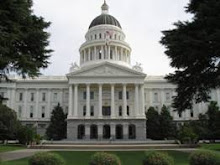LEGAL IMPLICATIONS FOR YOUR OFFICE HOLIDAY PARTY
Everyone loves an office holiday party. It also serves many legitimate business purposes -- to reward employees, to raise morale, and to simply commemorate the end of one year and ring in the next. However, for many employers, holiday parties are a source of considerable anxiety and potential liability as management worries about the mistletoe and mayhem so frequently associated with these types of events. To help you make your company’s 2008 office holiday party enjoyable and crisis-free, we offer the following party planning guidelines and suggestions:
1. Remember that office parties are always business events! Remind all attendees to conduct themselves professionally and to avoid inappropriate behavior at all times. Physical, verbal, and visual activity unacceptable in the workplace is also unsuitable at office parties. (For example, abstain from unnecessary and potentially awkward physical greetings and signs of affection; it is no more appropriate to hug or kiss a co-worker at an office party than at the office. Do not allow the seemingly more relaxed environment to open the door for potentially offensive conversation and language. Steer away from swearing, profanity, and stories or comments, intended to be humorous or otherwise, which relate to personal characteristics such as age, color, marital and military status, national origin and ancestry, medical conditions, race, sex, sexual orientation, and gender identity, or such sincerely held personal and controversial convictions as religion and politics. Also, avoid revealing, overly-tight, or provocative dress and attire which may be distasteful and insulting to other party attendees.)
2. To serve or not to serve – that is always the question. Employers should be aware of the potential liability that may develop if an intoxicated employee causes an injury after leaving an office-hosted or sponsored party. California courts have held employers liable for third-party personal injuries caused by employees who drive home from company holiday parties intoxicated. In the matter of Harris v. Trojan Fireworks Company, the Court held the employer liable for injuries caused by an intoxicated employee driving home from an office party. The Court held that, “although the accident occurred away from the employer’s premises and presumably after work, we believe that the operable factors giving rise to the subsequent accident at least make a prima facie showing that the accident occurred in the course of [the employee’s] employment. . . .” (120 Cal. App. 3d 157, at 164 (1981).) An employer choosing to serve alcoholic beverages at an office celebration should consider the following:
(a) Contemplate a no host bar. While this does not eliminate potential employer liability, it weakens the argument that the employer provided the alcohol.
(b) Prior to the event, re-distribute your workplace substance abuse policy; have employees read it, and acknowledge both receipt of the policy and an understanding of it. Make sure your employees know the policy includes the use of alcohol in any work-related event or situation and office social functions.
(c) Host the party at a commercial establishment whereby employees are not distributing the alcohol, and make certain the hired service has a valid liquor license. If a company does hold the event on work property, hire professional bartenders and require servers to check for proof of age of all employees and his or her guest(s). Of course, anybody under the age of 21 or unable to show proof of age should not be served alcohol.
(d) Alcohol should be attended at all times; party attendees should never be able to help themselves to drinks. Do not serve alcohol to any individual who is intoxicated or perceived to be intoxicated. A "last call" should be made at least one hour prior to the event closing time. Also, make non-alcoholic beverages available, including coffee.
(e) Coordinate and plan for alternative transportation. Anticipate the need for departure transportation for all party goers and make these arrangements in advance of the party. Encourage employees to have a designated driver or make use of the alternative transportation if they consume any alcohol.
3. Designate or hire a group of “party chaperones.” These individuals have the responsibility of monitoring for inappropriate behavior, illegal drug use, intoxication, and uninvited guests. Chaperones should report concerns to specified management for any necessary remedial action.
4. Avoid associating the party with any specific religion. Do not assume everyone celebrates the same holiday at the same time of year. Hosting a “holiday party” or “winterfest” encompasses those celebrating Christmas, Hanukkah, Kwanzaa, and other holidays. Refrain from using related decorations (i.e., Christmas Tree, Menorah, Mkeka, etc.), music, and greetings/verbiage (“Merry Christmas!). While this will certainly be noticed by employees and may arouse some discord with those who believe it is their right of religious freedom to exercise their independent customs, it should be easily explained and understood the employer’s attempt is to exclude no employee from the celebration and ensure equality in a diverse work environment.
5. If the party involves the exchange of gifts, ask employees to make suitable purchase choices. First, an employer should distribute its policy on gift-giving and confirm with employees that they will follow the policy. The larger and more structured the employer, the more likely a specific detailed written policy will be required. Request employees pay heed to budgets and refrain from purchasing and bringing gag items, overly personal items or other potentially offensive gifts.
6. Be extremely cautious of activities which may require or encourage physical contact. Avoid dancing and certain party games which provide the opportunity for touching or other potentially inappropriate behavior –which may lead to significant misunderstandings and potential employer liability.
7. Pay close attention to the invitation list. The enjoyment of a holiday party is not only influenced by the conduct of employees, but also by their guests. If you are aware an employee has invited a guest who prompts pre-party apprehension, have a direct discussion with the employee and attempt to prevent a potentially awkward onsite situation. If you see unsuitable behavior by a guest at the party, depending on the nature and degree of the conduct, you may need to ask the employee to intervene, or you may have to ask the guest to leave. Any guest arriving at the party without a known employee connection should not be allowed to enter. Remember, similar to the workplace, liability issues may arise from inappropriate or unsafe behavior by any third-party attending an office party.
With special care, planning, and the application of good judgment, holiday parties can still be fun. Most employers put significant effort into this gathering, genuinely intending to make it one of the most memorable events of the year. Have a good time and enjoy yourself and your co-workers. As is typical with much in life, the concept of moderation and use of common sense are keys to having a safe and liability-free holiday party.
Author Gary R. Basham, Esq., is a founding partner of the employment law firm Basham Parker LLP, where he exclusively practices employment law and related litigation. Mr. Basham has extensive experience with wrongful termination, discrimination, sexual harassment, and retaliation claims and litigation, and regularly defends employers against claims for breach of contract, unfair business practices, violation of wage and hour laws, as well as numerous other tort and statutory employment law causes of action. He frequently speaks and lectures at employment law seminars and provides workplace training and education to both management and employees. Mr. Basham may be reached at either his Sacramento or Walnut Creek, California, offices, by email to gary@bashamparker.com.
Friday, December 05, 2008
Subscribe to:
Comments (Atom)








